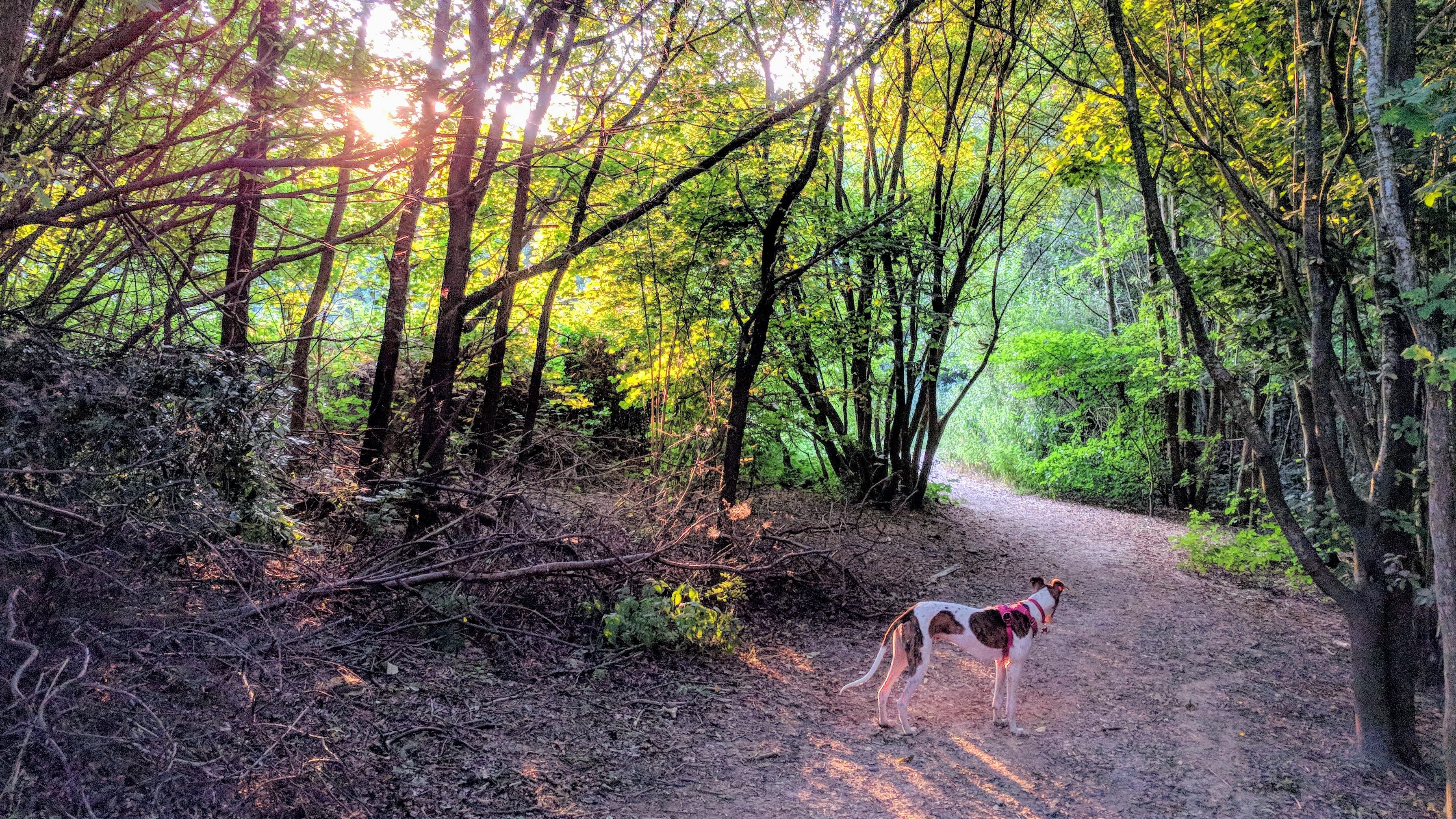Thousands of RV owners choose to bring their dogs along for the ride and to participate in the travels. In fact, that’s one of the best parts of owning an RV in the first place, to have the flexibility and the capability to bring along your faithful friend. Your dog won’t be restricted to the RV, however, and there are plenty of outdoor hazards to be aware of.
Outdoor Hazard #1: Wildlife
When you’re out in the wild, whether you’re boondocking or hiking, you will likely encounter wildlife. Michigan is full of nature’s creatures, the most commonly encountered being squirrels, bunnies, raccoons, deer, and waterfowl. These animals tend not to cause any harm unless they are sick and have an up-close encounter with your dog, such as rabies. Make sure your dog is up to date on vaccinations, and if your dog does have a meeting with a sick animal, you should speak with a veterinary professional immediately. If your dog tends to run after animals and can’t be called back, make sure he is leashed during any outings. In the event your dog does run off, it helps to have the proper identification on your dog’s collar in case he’s found by someone else. More dangerous creatures include black bears, porcupines, and turkeys (they can be pretty mean!). If your dog is injured because of one of these animals, seek veterinary treatment as soon as possible if the injury does not stop bleeding or needs stiches.
Outdoor Hazard #2: Weather
Treat your dog as you would any human being with it comes to handling the ups and downs in temperature. Dogs breathe heavily to help cool off their bodies as well as look for cool, shady spots when it’s hot. In hot weather, make sure your dog has a shady place to rest and plenty of water. Embark on activities during cooler parts of the day. If your dog seems too hot, put some cool water on his belly and paws. In cold weather, don’t let your dog be outdoors for too long, even if it’s a burly breed made to withstand the elements. Dogs can get frostbite and hypothermia just like us. Make sure paws are kept dry, that paws are rubbed clean with a towel if they’ve been across any ice-melting salt, and provide a vest or blanket for them to snuggle up in.
Outdoor Hazard #3: Rotten Food
Garbage bins, loose trash, and road kill can easily tantalize a dog’s senses and lead him to eat something he – and you – will regret. A dog shouldn’t be left to wander around a campground to do as he pleases, including getting into the trash. Rotten food can upset a dog’s stomach, leading to messes in the RV later, the smell from which can easily overtake a small space. Plus, dead animals can carry disease. Just don’t give your dog any opportunity to eat anything other than dog food. Period.
Outdoor Hazard #4: Water
Standing water, found in ponds and puddles, is a prime location for bacteria and parasites to harbor and thrive. Steer your dog around this type of water as he can become seriously ill. In the summer and early fall, avoid any body of water that has lots of algae with a blue-green hue floating around (almost like pea soup). Blooms of blue-green algae are toxic and can cause your once-happy dog to feel sick within minutes. If your dog experiences vomiting, weakness, difficulty breathing, or seizures after swimming in water with blue-green algae, see a vet immediately! You can also become sick if you have skin contact with or breathe in water droplets infected with algal toxins, which begin hours to two days after exposure.
Outdoor Hazard #5: Pointy Objects
Keep an eye on your dog’s paws. After every outing, check for cracks in the pads and for any objects that might be stuck in their feet. Thorns and other prickles make dogs uncomfortable. Treat any foot injury immediately by washing it out and bandaging it. Let the dog lay low for a couple days if the injury has caused him to limp. A dog will compensate for its hurt limb by relying more on his healthy limbs, which increases the risk of a sprain or tear to important joints.

